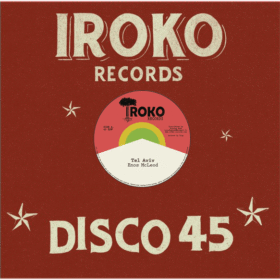
ENOS MCLEOD
Tel Aviv / Massicer Dub
Other releases by ENOS MCLEOD
Because Enos McLeod was born premature, he earned the nickname ‘Mousso,’ meaning ‘mouse.’ His mother was a popular singer that tragically died when Enos was young, leaving his father, an aspiring musician that became a civil servant, to raise him in different parts of western Kingston. Soon, the Heptones, Marcia Griffiths and Rita Marley were schoolmates, and Derrick Morgan also lived nearby, leading Enos to try his luck at Vere Johns’ Opportunity Hour and other local talent shows. During his teens, he passed through a group called the Itals and tried to record as a solo singer at Studio One, but the rhythm ended up being used for the Hamlins’ ‘Soul And Inspiration’ instead; early recordings for Sid Bucknor also remain unreleased. Then, around 1967, McLeod was doing construction work, when his boss, Wesley Bailey, noted his singing talent. Bailey thus funded a recording session, at which McLeod arranged Lloyd Clarke’s ‘Young Love,’ which hit in Jamaica on a blank-label pre-release, and even found issue on Blue Cat in Britain; around the same time, McLeod cut a version of ‘Will You Love Me Tomorrow’ as ‘Tonight You’re Mine’ with a certain Shiela. After cutting some incidental sides for Joe Gibbs and Carib Disco, he was dormant until 1974, when he began producing material by deejays such as Biog Joe, Dillinger, Doctor Alimantado and Shorty the President (as well as King Cry Cry, who he renamed Prince Fari), as well as singers like Gregory Isaacs, Ronnie Davis and Cynthia Webber, channelling the material through the Soul Beat and Micron outfits. He officially launched the Orbit label a few years later, issuing ‘Tel Aviv’ on it in 1980, which was distributed via Channel One, but recorded at Joe Gibbs according to the singer. Let there be no confusion about the song’s subject matter: rather than speaking of an Israeli city, in the song McLeod describes the internecine warfare waged between two neighbouring communities in Central Kingston, known as Tel Aviv and Southside, the original dispute dating back to 1969, and apparently sparked by an argument about a gang member’s flared trousers; B-side ‘Massicer Dub’ reinforces the peace-keeping message in a deejay style.
David Katz ©



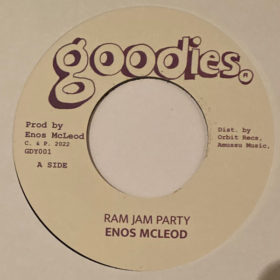

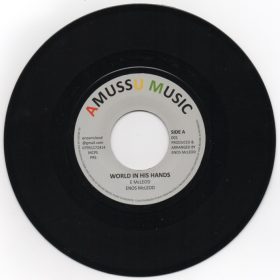
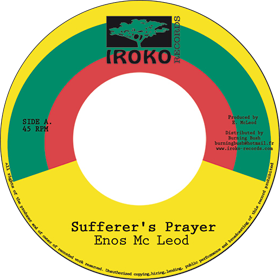
 TYRONE TAYLOR / THE BLACK DISCIPLES
TYRONE TAYLOR / THE BLACK DISCIPLES TYRONE TAYLOR / THE BLACK DISCIPLES
TYRONE TAYLOR / THE BLACK DISCIPLES RICKEY MESSENGER & THE SEMI PROFESSIONNALS
RICKEY MESSENGER & THE SEMI PROFESSIONNALS EARL SIXTEEN / RUSS D
EARL SIXTEEN / RUSS D DESI ROOTS
DESI ROOTS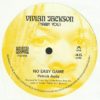 PATRICK ANDY
PATRICK ANDY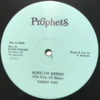 YABBY YOU
YABBY YOU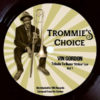 VIN GORDON
VIN GORDON
